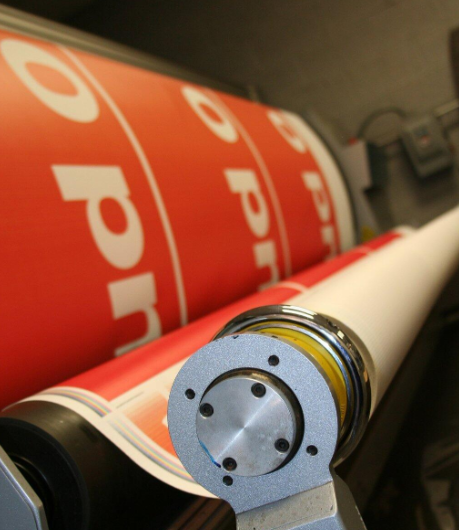Trucking collisions can leave individuals grappling with physical, emotional, and financial burdens. The process of filing an insurance claim after such an accident can feel overwhelming, particularly for those unfamiliar with the complexities of commercial insurance policies. By understanding the steps involved, you can protect your rights and pursue fair compensation effectively.
Understanding Liability in Trucking Collisions
Determining liability is one of the most crucial aspects of resolving an insurance claim after a trucking collision. Unlike standard car accidents, trucking collisions often involve multiple parties. The truck driver, the trucking company, or even a third-party contractor may share responsibility.
Federal regulations, such as those enforced by the Federal Motor Carrier Safety Administration (FMCSA), require trucking companies to maintain specific safety standards. A failure to comply with these regulations—whether due to driver fatigue, improper vehicle maintenance, or overloaded cargo—can place liability squarely on the trucking company. To strengthen your claim, gathering evidence like police reports, eyewitness statements, and truck maintenance records is essential.
Collecting Evidence After a Trucking Collision
Preserving evidence is critical to building a strong insurance claim. After ensuring your immediate safety and seeking medical attention, document the accident scene as thoroughly as possible. Take photographs of the vehicles, road conditions, skid marks, and any visible injuries. If possible, obtain contact information from witnesses and request a copy of the police report.
Trucking companies and their insurers often have rapid-response teams dispatched to accident sites to mitigate their liability. Acting swiftly to gather evidence ensures that you have accurate records before critical details are lost or altered. Consulting experts, such as accident reconstruction specialists, may also be helpful in complex cases involving unclear faults.
Dealing With Commercial Insurance Policies
Trucking collisions differ from typical motor vehicle accidents due to the involvement of commercial insurance policies. These policies often carry higher coverage limits, reflecting the significant damages associated with large truck accidents. However, navigating these policies can be complicated, as insurers may employ tactics to minimize payouts.
One strategy to protect yourself is to review all applicable insurance policies carefully. This includes the trucking company’s liability coverage and any additional coverage the driver might have. Be cautious when communicating with insurance adjusters, as they may attempt to use your statements against you. Having trusted trial lawyers review your case early in the process can ensure you’re treated fairly and receive the compensation you deserve. As legal experts from Paul Knopf Bigger explain insurance companies always prioritize their profits, so they may delay, undervalue, or outright deny valid claims to reduce their financial liability. Experienced attorneys will negotiate effectively with insurers, and build a compelling case if litigation becomes necessary.
Calculating the Value of Your Claim
The financial impact of a trucking collision often extends far beyond immediate medical bills. When calculating the value of your insurance claim, consider both economic and non-economic damages. Economic damages include expenses such as medical treatment, lost wages, and vehicle repairs. Non-economic damages, like pain and suffering or diminished quality of life, may also be significant factors.
Working with medical and financial experts can provide an accurate picture of your damages. Future medical needs, such as physical therapy or surgeries, should be accounted for to avoid settling for less than you require. Keep detailed records of all accident-related expenses and correspondence with insurers.
Negotiating With Insurers
Insurance companies are profit-driven entities, and their goal is to minimize payouts. As a result, claimants often face lowball settlement offers or outright denials. It’s vital to approach negotiations strategically, backed by strong evidence and a clear understanding of your rights.
When presenting your claim, remain firm and provide thorough documentation to support your position. Counter any low offers by referencing specific evidence of damages. If negotiations stall, consider hiring legal representation to advocate on your behalf. Experienced attorneys understand how to counter insurer tactics effectively and may increase the likelihood of a favorable settlement.
The Role of Legal Representation
While it’s possible to navigate an insurance claim independently, legal representation often proves invaluable in trucking collision cases. Attorneys specializing in personal injury law bring expertise in managing complex liability issues and negotiating with commercial insurers. They can handle time-sensitive tasks, such as filing claims within applicable deadlines, while you focus on recovery.
In cases involving severe injuries or disputed liability, having legal support can make a significant difference. Your attorney can ensure that all evidence is preserved, witnesses are interviewed, and your rights are upheld throughout the process. Moreover, if a settlement cannot be reached, they can guide you through litigation.
Avoiding Common Pitfalls During the Claims Process
Many claimants unintentionally jeopardize their cases by making avoidable mistakes. Common pitfalls include accepting the first settlement offer, failing to document injuries thoroughly, or missing deadlines for filing claims. Additionally, providing recorded statements to insurers without legal counsel can be risky.
To avoid these errors, stay informed about your rights and seek professional guidance when necessary. Even seemingly minor missteps can impact your ability to secure adequate compensation. Remaining vigilant and proactive is key to protecting your interests.
Preparing for Potential Litigation
While many insurance claims are resolved through negotiation, some cases may proceed to litigation. Preparing for this possibility involves building a comprehensive case supported by evidence, expert testimony, and legal expertise. Litigation can be time-consuming, but it may be necessary to secure a fair outcome, particularly in high-stakes trucking collision cases.
Your attorney will help you navigate the legal process, from filing the initial complaint to presenting your case in court. By staying organized and maintaining open communication with your legal team, you can face the challenges of litigation with confidence.
Trucking collisions are undeniably stressful, but understanding the claims process can make navigating the aftermath more manageable. By taking the appropriate steps, protecting evidence, and seeking professional assistance when needed, you’re better positioned to pursue fair compensation and rebuild your life after the accident.

Daniel J. Morgan is the founder of Invidiata Magazine, a premier publication showcasing luxury living, arts, and culture. With a passion for excellence, Daniel has established the magazine as a beacon of sophistication and refinement, captivating discerning audiences worldwide.





